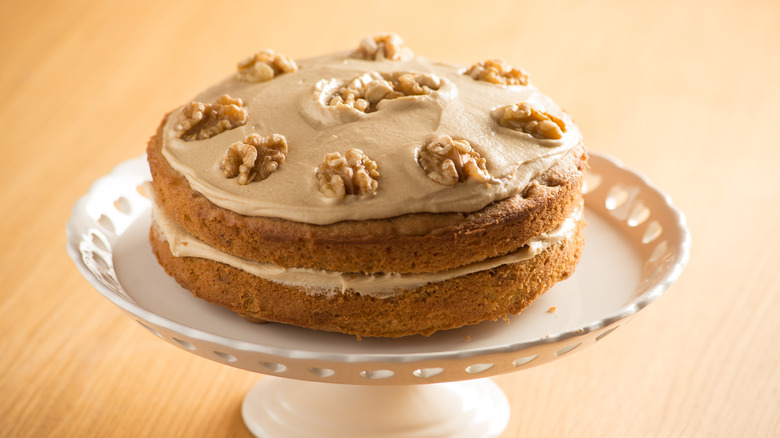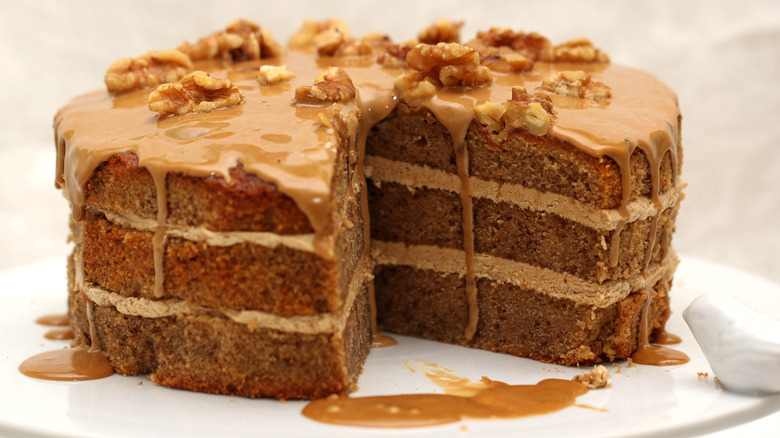The Mysterious Origins Of The UK's Classic Coffee And Walnut Cake
Those of us who have ventured across the pond to Great Britain may have been taken aback when we first caught sight of — and then tasted — a British coffee cake. And who could blame us? After all, according to Food Timeline, America's early coffee cakes were either of German or Dutch origin, descended from yeasted breads spiked with nuts and dried fruit and perfumed with spices. They also came topped with streusel or crumb, which we still see on so many types of American coffee cakes today.
But there isn't a speck of streusel or crumb to be seen on a British coffee cake. Instead, it's an actual slice of layer cake that's coffee-flavored, covered generously with coffee-flavored buttercream, and given a crunchy mouthfeel with the addition of chopped walnuts, per Great British Chefs. As the site notes, the cake is a classic of British baking – up there with a good lemon drizzle cake, chocolate cake, Dundee cake, or classic Victoria sponge.
The origins of coffee and walnut cake are unclear
There is no questioning the popularity of coffee and walnut cake. Its origins, however, remain something of a mystery. As Epicurious points out, the first time the coffee walnut cake is referenced appears to be in a 1934 ad for self-raising flour, published by manufacturer McDougall's (via Alamy).
If, in fact, coffee and walnut cake came out of McDougall's test kitchens, it wouldn't be a surprise. According to Vice, food manufacturers regularly shared recipes during the late 1800s and into the early 1900s, when food producers began introducing new products — like self-raising flour, which was invented in 1845 by an Englishman named Henry Jones, explains Matthews Cotswold Flour.
General Mills cookbook editor Cathy Swanson says her company began putting recipes on packaging in the 1920s "or earlier," with the idea of delivering "the benefits of General Mills' research, products control, [and] product testing," to its customers, per Vice. This explains why a good number of recipes we inherited from our mothers and grandmothers came from the labels on packages of chocolate chips, pumpkin pie filling, and Velveeta processed cheese.
There may be different ways to elevate the humble coffee and walnut cake today — chef and food writer Mary Berry once called on contestants of "The Great British Bake Off" to make a checkerboard Battenberg version, notes Vice — but to many British people, there will be nothing like the classic coffee and walnut cake, a dessert that iconic British food writer Nigel Slater said would be part of his ideal last meal.

